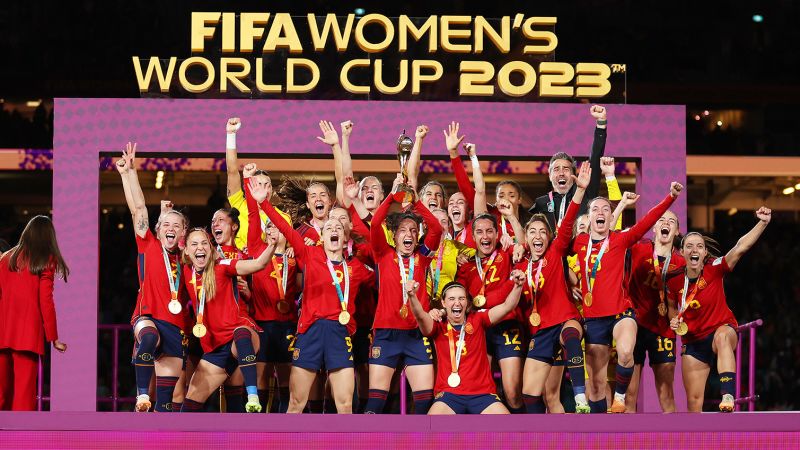CNN
—
Jennifer Hermoso has been called up by the Spanish national team for the first time following the fallout around the unwanted kiss she received from the former president of the Royal Spanish Football Federation (RFEF), Luis Rubiales.
The incident took place on August 20 following Spain’s 1-0 victory against England in the Women’s World Cup final held in Sydney, Australia.
Video from the World Cup medal ceremony showed Rubiales embracing Hermoso, then putting both hands on her head before forcibly kissing her. He then patted her on the back as she walked away.
Later, Hermoso said of the kiss, “Hey, I didn’t like it” as she apparently answered questions about the incident in an Instagram live video from a celebratory locker room.
It would be several days, on August 25, before Hermoso spoke out again on social media after Rubiales defiantly refused to step down as RFEF president.
“I felt vulnerable and a victim of an impulse-driven, sexist, out of place act without any consent on my part … Simply put, I was not respected,” she said.
Hermoso then filed an official complaint with prosecutors against Rubiales. The beleaguered former soccer boss initially refused to stand down from his role, but eventually resigned as RFEF president on September 10.
Rubiales is currently under investigation for “the crimes of sexual assault and coercion” by Spain’s National Court. Hermoso and several of her teammates have since given testimony to aid in the investigation, in addition to Rubiales.
Hermoso was not previously chosen for the Spain squad selected for international duty in September. At the time, when asked to explain Hermoso’s absence, head coach Montse Tomé said she wanted to protect the star but left open the possibility of her returning to the squad in the future.
Controversially, Tomé had selected the squad for the games against Sweden and Switzerland, despite the players stating their “firm will to not be called up for motives which are justified,” causing another embarrassing situation for Spanish soccer amid the fallout involving Rubiales, which led to the Spanish government stepping in to help resolve the situation.
Only after crisis talks did 21 of the 23 players selected in the squad agree to play. The breakthrough came after the Spanish women’s soccer team and the Royal Spanish Football Federation (RFEF), along with the government’s High Council of Sport (CSD), came to a series of agreements to help lead to large structural change in the federation.
In the upcoming international break, the Spanish women’s national team plays Italy on October 27, before traveling to Switzerland on October 31.






